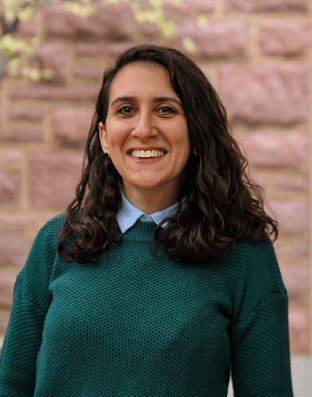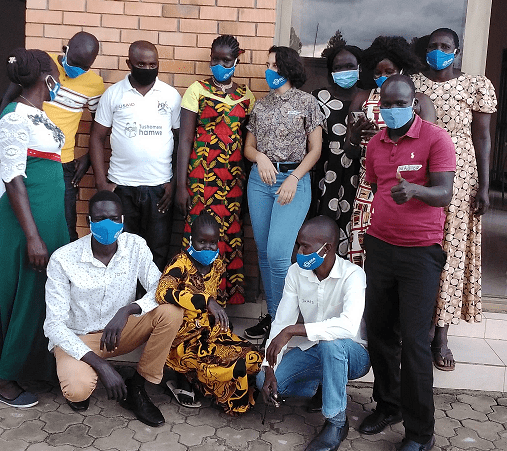Written by Kim Furlow, communications manager for the Institute for Public Health

Since 2020, Flora Cohen, LMSW, a PhD candidate at WashU’s Brown School has worked with the Transcultural Psychosocial Organization (TPO) in Uganda to put into effect, evaluate, and communicate the results from a program called “The Journey of Life”. The intervention is designed to improve parent mental health and the protection of children in their community.
There are currently 1.6 million refugees living in Uganda, more than half of them under the age of 18. During COVID-19, Uganda experienced longer school closures than anywhere in the world: two years during which children didn’t attend school. At the same time, teenage pregnancies and early marriages skyrocketed. There was a huge need for children’s support services. Caregivers, who already had strained resources, also needed additional supports. The intervention brought together small groups of community child caregivers to discuss managing problems and how, as a community, they could support children’s wellbeing.
WashU Associate Dean for GlobaI Programs, Professor Lindsay Stark, DrPH, MPH, and Chief Executive Officer of the Regional Psychosocial Support Initiative, Patrick Onyango Mangen, MSc, led the study.
The first of its kind, the study aimed to find out whether or not participants’ mental health improved following the Journey of Life intervention. A second goal was to assess changes in functioning, social support, intimate partner violence, parenting behaviors, and attitudes towards child protection. Using an implementation science framework called CFIR (Consolidated Framework for Implementation Research), the team assessed the feasibility of the intervention and any barriers to its delivery. Interviews were conducted with caregivers and community members (including children) to gauge intervention components.
What they found was that the program was quite feasible and participants were satisfied with the results. However, to participating community members, it was also important to acknowledge the challenges of attending group programs when they barely have food to eat, or certain travel resources. By forming community partnerships with those who could offer resources (like seeds for farming), these types of barriers were addressed.

Workshops, printed materials, manuscript publications, and conference presentations have provided study findings to local refugee communities in Uganda, partners who implement similar programs in the region, and global organizations who are interested in psychosocial interventions like “The Journey of Life”, to help improve mental health.
Cohen says her engaging in workshops, trainings, mentor relationships and courses facilitated by the Center for Dissemination and Implementation at the Institute for Public Health has been of “immeasurable help” to her work. She recommends others take advantage of what the center has to offer.
“I believe other students can greatly benefit from engagement with the Center for Dissemination & Implementation,” said Cohen. “Even if they start with signing up for the newsletter in order to stay engaged with recent events and upcoming discussions.”
The Center for Dissemination and Implementation advances the growing body of D&I research methods by building training opportunities and catalyzing newly applied D&I research across